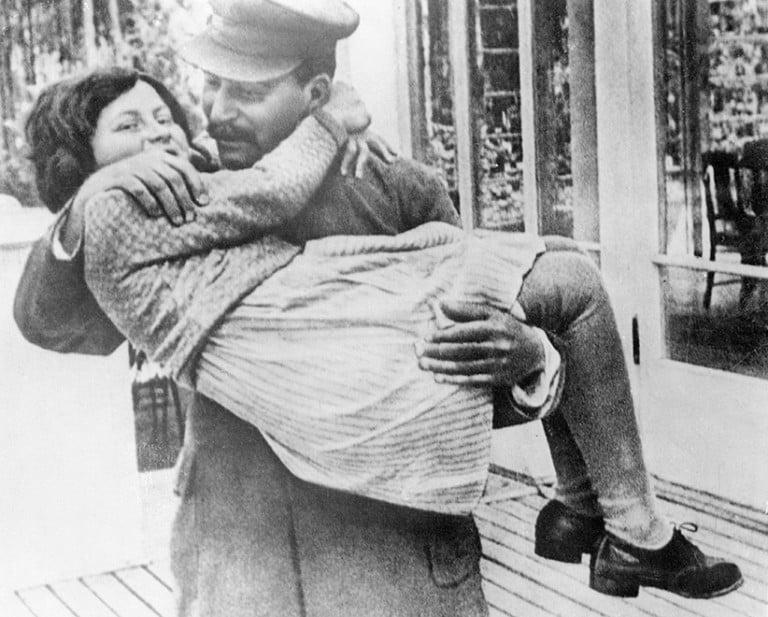Rosemary Sullivan wins Hilary Weston Writers’ Trust Prize
Sullivan honoured with $60,000 prize for for ‘Stalin’s Daughter,’ a biography of Svetlana Alliluyeva

A rare photo of Marshal Josef Stalin holding his daughter, Svetlana. The photo was taken in 1937, at Stalin’s country house in the suburbs of Moscow. (Bettmann/CORBIS)
Share
If there were an odds-on favourite to take the Hilary Weston Writers’ Trust Prize for Nonfiction—at $60,000, the most lucrative such award in Canada—it was the winner, Rosemary Sullivan. Critics universally loved Stalin’s Daughter, Sullivan’s portrait of Svetlana Alliluyeva, the Soviet dictator’s only daughter. And not just for her subject, arresting as Svetlana was: “Intelligent and driven,” said Sullivan after the prize was awarded on Oct. 6, “but she also emerged , among the 40 people I interviewed for the book, as extremely impulsive.”
Daring, as well: Allowed out of Russia to bring her Indian lover’s ashes back home in 1967, Alliluyeva walked into the American Embassy, defecting in the middle of the Cold War. Yet there is an even greater resonance to Sullivan’s book. During her thank-you speech, the author made wry reference to the constraints on literary non-fiction writers, their need to combine narrative drive with the fact that “we can’t make anything up.” Writers inescapably shape their stories, though, fictional or otherwise, and Sullivan’s narrative ability has made a tale about more than one woman who couldn’t escape an all-powerful ruler’s shadow—a story of all the kings’ daughters, all of history’s female pawns.
Read more:
The sad, strange life of Joseph Stalin’s daughter: In conversation with Rosemary Sullivan